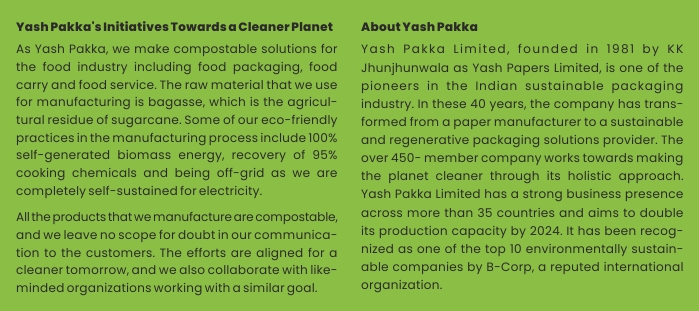
In an era where consumers are becoming increasingly conscious of environmental issues, companies are quick to adopt the language of sustainability to attract eco-minded customers. However, not all claims of eco-friendliness are created equal. The practice of misleading consumers about the environmental benefits of a product or company is commonly known as greenwashing. As World Environment Day has just gone by, let us have a look at some of the implications of greenwashing.
Delaying Real Change
Greenwashing can create a false sense of accomplishment, leading to a delay in real change. Many companies today engage in superficial sustainability initiatives or launch “green” marketing campaigns without substantive actions. Thus, they divert attention and resources away from implementing meaningful environmental improvements. By promoting the illusion of sustainability, greenwashing perpetuates a status quo that hinders progress toward genuine environmental stewardship and sustainability goals.
Contributing to Consumer Confusion
Greenwashing adds to the already confusing landscape of eco-labels, certifications, and sustainability claims. With so many competing messages, consumers may find it challenging to distinguish between truly sustainable products and those that merely appear to be. This confusion can lead to decision paralysis or even cynicism, as consumers question the legitimacy of any sustainability claim. The lack of clear and standardized guidelines regarding green marketing practices further compounds the issue, leaving consumers at a loss when trying to make environmentally responsible choices.
Watch: JMC Paper Tech Launches New Subsidiary JMC Papers
Diverting Resources from Genuine Solutions
Greenwashing can divert attention and resources away from implementing genuine solutions to environmental challenges. Companies that engage in greenwashing may focus their efforts on green marketing campaigns rather than investing in research, development, and implementation of truly sustainable practices. This diversion of resources perpetuates a cycle where superficial sustainability claims are prioritized over meaningful actions that could lead to positive environmental change.
Damaging Environmental Progress
Perhaps the most detrimental effect of greenwashing is the potential harm to the environment itself. By perpetuating misleading claims, greenwashing hampers collective efforts to combat pressing environmental issues such as climate change, resource depletion, and pollution. The time, energy, and resources wasted on deceptive practices could be better utilized in implementing genuinely sustainable practices that help preserve natural resources, reduce emissions, and protect ecosystems.
Also Read: Xylem India: Solving Water and Wastewater Related Issues for Pulp and Paper Industries
What is the Solution?
The solution to greenwashing lies in consumer awareness. For consumer awareness, it is important to have increased transparency from brands. The guidelines for green marketing practices must be clear and the Government and companies must act together and fast on this. Likewise, better certifications and labels must be implemented immediately, as has been the case in the last decade in terms of food regulations. Furthermore, consumers must ask more questions to make better choices. Understanding the true meaning of terms such as recyclable, biodegradable, eco-friendly and compostable is important.




